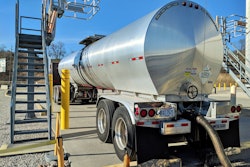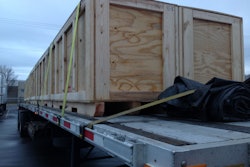One major mistake many owner-operators make when considering the move to run under their own authority is to underestimate the total cost of operations.
Consider these areas and decide if you are going to handle them yourself or pay a third party or hire part-time help to get them addressed. We're not just talking freight rates, dispatch and negotiating with brokers and shippers but:
- General compliance
- Safety
- Drug testing
- Hours of service
- Accounting, including fuel and mileage taxes and associated bookkeeping
The first four of the areas listed above are spelled out in the voluminous Federal Motor Carrier Safety Administration safety regulations. Addressing these can cause a lot of stress and confusion. Also under FMCSA is the new entrant safety audit. New entrants to trucking face a shortened deadline for correcting problems in their applications: corrective action plans are required within 15 days of the audit or, in some cases, as few as 10 days.
Have in place a drug and alcohol testing program -- most one-truck and other very small carriers utilize a drug-testing consortium for the purpose -- as well as one for keeping vehicle maintenance and hours of service records. (The latter is fairly simply with an electronic logging device, yet make certain the device and its software are set up to retain relevant records for at least a minimum of the required six months.)

A carrier often handles tax filings for its leased owner-operators, but now you are the carrier. You are responsible for accounting for income and revenue for federal and state tax purposes, fuel tax, mileage tax and heavy vehicle use tax.
Also, it’s possible that you would be better off forming a limited liability company (LLC) or an S Corp for tax and other reasons before getting your own operating authority. Explore the question of tax structure with your business services provider or accountant before starting the application process.
When you are operating as a carrier, you won’t always receive 1099s for the revenue you generate. You’ll need an accounting system that tracks all income and expenses.
Other crucial preparations include developing a system for invoicing, accounts receivable and tracking fuel and mileage taxes. The latter two require filing the appropriate forms.
You or a third-party specialist in this area will need to track all miles and gallons of fuel purchased in each state in order to file your IFTA forms. You also may need to file mileage tax forms in Connecticut, New York, Kentucky, New Mexico and Oregon if you travel through any of those states in any given quarter.
This may sound like a lot of work, and it is. Going independent can be a great opportunity, but it can be your worst nightmare if you fail to plan and execute properly. If this is your goal, create your plan, count the costs, create your budget, and follow through.
[Related: How to beat brokers at their own game and win direct freight]
Do-or-die preps for the New Entrant audit
For an owner-operator getting into business as a motor carrier with operating authority, buttoning up the business with written policy frameworks and good record-keeping will be key to staying in operation with hiccups at some point within the first couple years in business. The FMCSA’s policy is to audit most new entrants within the carrier’s first 18 months of business. By some accounts, that’s aspirational, but you can be sure that it’s only a matter of time before auditors get to you.
It’s critical you put into place evidence of your attention to compliance and safety management.
Critical areas of focus for new entrant audits include driver qualifications, logs, maintenance programs, a filed and up-to-date accident register and written drug and alcohol policies and procedures.
Any of the following violations will result in an automatic failure of the audit:
- Failing to implement an alcohol and/or controlled substances testing program.
- Failing to implement a random controlled substance testing program.
- Driving or using a driver with an alcohol content of 0.04 or greater.
- Using a driver who has refused to submit to an alcohol or controlled-substances test.
- Using a driver known to have tested positive for a controlled substance.
- Driving or using a driver without a CDL.
- Driving or using a driver with a suspended, revoked or canceled license or a federal disqualification.
- Allowing a disqualified driver to drive.
- Not carrying appropriate insurance, including $750K minimum primary liability -- for household-goods haulers, also required cargo insurance ($5K minimum per vehicle).
- Knowingly using a physically unqualified driver.
- Failing to require a driver to keep record of duty status (logs) current.
- Running a vehicle declared out of service before repairs are made.
- Failing to correct out-of-service defects listed on vehicle inspection reports before further operation.
- Running a truck not inspected periodically.
Read next: Be wary of fine print in broker/direct customer agreements and contracts









